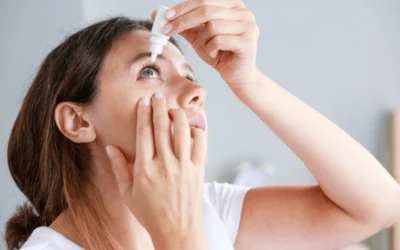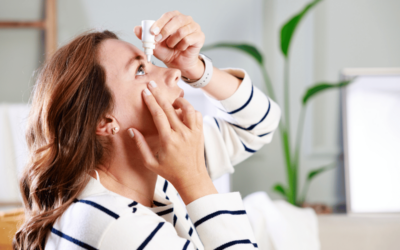Dry eye can be a frustrating issue for many people. Constant irritation and discomfort can make it difficult to concentrate or enjoy daily activities. While various factors can cause dry eyes, meibomian gland dysfunction (MGD) is one of the most common conditions that affect the health of your eyes’ oil glands, leading to chronic dryness. But what exactly is this condition, and what can you do to relieve it?
In this blog post, we will discuss everything you need to know about MGD, including its signs and symptoms, causes, and how to find relief with dry eye treatment in Plymouth.
What is meibomian gland dysfunction?
The meibomian glands are tiny oil-producing glands found within your eyelids. These glands secrete oils that help maintain the tear film of your eye, keeping your eyes hydrated throughout the day. Meibomian gland dysfunction (or MGD) is caused by clogging or inflammation of the meibomian glands. As a result, the glands fail to produce enough oil to produce quality tears, leading to dry eye symptoms.
What are the symptoms of MGD?
The most commonly associated symptoms of meibomian gland dysfunction include dryness, irritation, itchiness, and a burning sensation in your eyes. In severe cases, MGD can also cause blepharitis, which is an inflammation of the eyelid that leads to redness, swelling, and even the discharge of a sticky substance. The discomfort caused by MGD can significantly impact your vision, leading to difficulty reading, sensitivity to light, and blurry vision.
What are the causes of MGD?
Several factors can cause MGD, including aging, hormonal changes, environmental factors, and certain medical conditions like rosacea, diabetes, and thyroid problems. Also, poor eyelid hygiene, long-term contact lens wear, and excessive use of digital screens can contribute to the development of MGD.
How to diagnose and treat MGD
If you are experiencing dry eye symptoms, you should consult with your eye doctor, who can diagnose and treat MGD. Your doctor will perform a comprehensive eye exam, which may involve collecting samples of the oil from your eyelid, to examine your meibomian glands.
Treatment for MGD can include a combination of therapies tailored to your specific needs. Your doctor may recommend warm compresses, which can help to improve oil gland expression, remove blockages, and decrease the inflammation associated with MGD.
At Progressive Family Eye Care, we offer a range of solutions specifically designed to treat dry eye disease caused by MGD:
- BlephEx®: BlephEx® is a revolutionary treatment designed to address MGD and improve dry eye symptoms. This in-office procedure uses a gentle, rotating brush to clean, exfoliate, and remove bacteria and toxins from the eyelids and eyelashes that may contribute to MGD. By thoroughly cleaning the eyelids, BlephEx® helps to restore the normal function of the meibomian glands, reducing dry eye symptoms.
- iLux²®: The Systane® iLux²® MGD Thermal Pulsation System is another advanced treatment option available at Progressive Family Eye Care. It uses innovative technology to provide targeted, customized thermal therapy to the meibomian glands. The device applies gentle warmth and pressure to the eyelids, melting and liquefying the blocked oils. iLux²® treatment helps to improve the flow of oils and restore the health and function of the meibomian glands, relieving dry eye symptoms.
- OptiLight: OptiLight by Lumenis is an innovative light-based therapy that can be used in conjunction with other treatments for MGD-related dry eye. This non-invasive procedure uses specific wavelengths of light to target and stimulate the meibomian glands, promoting their proper function. OptiLight treatment can enhance the effectiveness of other therapies and help manage dry eye symptoms more effectively.
Meibomian gland dysfunction is a common and often underdiagnosed cause of dry eyes, which can affect your quality of life. The good news is that MGD can be treated or managed with the right diagnosis and a customized treatment plan from your eye doctor. Don’t let dry eye symptoms disrupt your life any longer. Schedule an appointment with our experts today and discover if MGD is the underlying cause of your discomfort.





